
The story behind the world record bluefin tuna
An extraordinary tale from Canadian waters
In the annals of fishing lore, the capture of the world record bluefin tuna stands unparalleled. Ken Fraser, a Canadian angler, etched his name in history when he successfully reeled in this monumental fish. The event took place off the chilly coast of Nova Scotia, Canada on October 26, 1979. This mighty catch, weighing a staggering 1,496 pounds, remains the largest bluefin tuna ever recorded by the International Game Fish Association (IGFA).
The challenge of rod and reel
Fraser was using a heavy-duty rod and reel combo, essential for taming such a powerful marine giant. The bluefin tuna’s strength and agility provided a test of endurance and skill, lasting over 45 minutes of grueling effort. It’s said that Fraser and his crew were initially in disbelief as the true size of their catch emerged.
A milestone in fishing history
This historic catch not only set a new world record but also highlighted Nova Scotia as a prime location for big game fishing. The bluefin tuna’s immense size and weight were verified by IGFA officials, cementing Fraser's place in the fishing hall of fame. The legacy of this catch continues to inspire anglers around the globe to seek their own record-breaking tuna.
Lessons for aspiring anglers
Fraser's achievement is a testament to the blend of patience, technique, and quality tackle essential for landing a record fish. Aspiring anglers can learn a lot from his meticulous approach and the selection of gears suitable for heavy-duty fishing. This bluefin tuna record serves as a beacon of what's possible when preparation meets opportunity.
The largest freshwater fish ever caught
The astonishing realm of freshwater catches
When it comes to record-breaking freshwater fish, anglers have turned rivers and lakes into arenas of legendary feats. Imagine being the one to reel in a record-setting giant that seems almost like a mythical creature. It's happened, right there in daylight with witnesses ready to swear on its size.
The goonch catfish in India is an example. Considered by some to be one of the most insane freshwater fish, this beast tipped the scales at an incredible 230 pounds, caught in the Kali River by local villagers. Such catches have spurred stories and investigations, like those found in biggest alligator gar.
The spectacular paddlefish of North America
Another standout freshwater catch is the paddlefish in North America. Dwight Epps of Oklahoma set the IGFA world record with a monstrous paddlefish that weighed in at 151 pounds, 14 ounces. Paddlefishing is popular in states like Texas and Mississippi, where these prehistoric-looking giants lurk.
Giant Mekong catfish in Southeast Asia
In the waters of Southeast Asia, the giant Mekong catfish has earned a fearsome reputation. In Thailand, a fisherman reeled in a staggering 646-pound Mekong catfish, a moment that continues to reverberate in the fishing community. Such a record fish exemplifies the massive scale of freshwater fish in this part of the globe.
Sturgeon: The behemoth of Canada and Russia
Crossing over to the massive sturgeon, these bottom dwellers are icons in Canada, especially in British Columbia. The Fraser River has witnessed catches reaching weights up to 1,102 pounds. In Russia, the sturgeon of Lake Baikal are renowned for their size and history, often revered in local folklore.
The great Northern pike
The Northern pike, though not always in the limelight, has a solid fan base among sports anglers. The IGFA record for the pike stands at an impressive 55 pounds, caught by Lothar Louis in Germany. These fish, known for their aggressive nature, put up a fight that reels anglers from across Europe to North America.
The great white shark record
The awe-inspiring story of the record-setting great white shark
Imagine being out on a serene ocean, waiting for the catch of your life, when suddenly, your rod bends, and you’re face to face with a true titan of the sea. That’s precisely what happened when a colossal great white shark was caught, setting an IGFA world record that stands to this day. This jaw-dropping catch happened off the coast of Australia in 1959. Alfred Dean, an experienced angler, managed to hook and reel in an astounding 2,664-pound (1,208 kg) great white shark using rod and reel. The shark measured an incredible length inches girth that seemed nearly impossible. However, this massive creature laid bare the sheer power and size of great whites swimming in the Atlantic and beyond. Talking about historic moments in the fishing community, let's not leave out the role of tackle in these epic battles. Alfred Dean’s record catch holds testament to the strength and durability of fishing gear back in the day. Using only a 130-pound test line (a common choice for targeting heavyweight game fish), he not only wrangled with this apex predator but also ensured the legacy of the fishing tackle world record. This record has inspired many anglers, urging them to test the limits of their gear and skill. The excitement and the challenges posed by catching such a significant shark are echoed by modern record-setting efforts, keeping the spirit alive. Take, for instance, Brett Sinclair, who narrowly missed breaking Dean's record with a 2,500-pound great white in the early 2000s. For those interested in learning more about incredible catches and the techniques behind them, a comprehensive guide to the fishing calendar can be very insightful. Such guides delve into peak seasons for catching different species, equipment tips, and more. In these extreme catch scenarios, the anglers' bravery and strength shine through. These tales of monumental catches from the depths of our oceans undoubtedly leave an indelible mark on the fishing world. And while Dean’s great white shark record still stands tall, the ocean is bound to offer more legendary catches in the future. Whether it’s battling a massive shark or landing a tremendous bluefin tuna, the passion, expertise, and thrill of fishing are everlasting.Record-breaking marlin catches
Epic marlin catches across the globe
Marlin fishing is a thrilling source of pride and competition for anglers worldwide. The scale and power of these fish make them a coveted catch, and the records set over the years are nothing short of incredible.
Arguably the most famous marlin record is attributed to Alfred C. Glassell Jr. In 1953, while fishing off Cabo Blanco, Peru, Glassell hooked a black marlin weighing a staggering 1,560 pounds. This record, recognized by the International Game Fish Association (IGFA), still stands today and is lauded as one of the greatest feats in big-game fishing. This giant measured 174 inches in length with a 37.5-inch girth!
In the Atlantic, the most notable marlin catch occurred off the coast of Madeira, Portugal. Gary Merriman landed a blue marlin weighing an incredible 1,376 pounds in 1982. The sheer size and fight of this fish have earned it a place in fishing lore.
New Zealand also boasts some impressive marlin records. In 1986, angler Zane Grey landed a striped marlin weighing 494 pounds off the Bay of Islands. This catch is iconic, setting a benchmark for anglers seeking to break into the record books in this region.
Ken Fraser's catch of a 1,496-pound bluefin tuna off Nova Scotia is another testament to the skill and perseverance required in big-game fishing. Although this is a tuna record, it’s relevant for showcasing the extraordinary potential of Atlantic waters, where marlin fish are also found.
Case studies of record-breaking marlin
A notable example involves Linda Williams, an angler from Kona, Hawaii. In 2015, she was reeling in a 1,142-pound blue marlin using a rod and reel designed for smaller game fish when the giant took the bait. Her dedication and skill resulted in a memorable catch without specialized heavy tackle.
The waters of Cabo Blanco, Peru, continue to produce outstanding marlin catches. In 2004, angler Nelson Ehret landed a 1,142-pound marlin, adding to the region’s storied reputation. According to IGFA records, this catch reaffirmed Cabo Blanco as a prime location for marlin fishing enthusiasts.
Controversial marlin records
There have been a few controversies surrounding marlin records, primarily regarding the use of unfair techniques or misreported weights. In the 1970s, an alleged world record blue marlin catch was invalidated after it was discovered that the weight had been falsely reported. These incidents highlight the importance of organizations like the IGFA, which ensure the integrity and accuracy of fishing records.
In another case, a blue marlin reportedly caught off the coast of Texas in 2001 was disqualified due to the angler allegedly using prohibited gear. This underscores the essential role of adherence to regulated fishing practices to maintain the credibility of records in the sport.
The biggest tuna catches around the world
Record catches of enormous tuna across the globe
Going after the biggest tuna is a dream for many fishers. These massive creatures are everywhere from the Atlantic to the Pacific, offering angling opportunities that can't be overlooked. To qualify for a world record, these fish need to meet strict criteria set by the International Game Fish Association (IGFA). It involves the use of specific tackle and following precise regulations.
Ken Fraser and the famous bluefin tuna catch
One of the most celebrated catches is the story of Ken Fraser landing a giant bluefin tuna. This incredible event took place in Nova Scotia, Canada, on October 26, 1979. The tuna weighed 1,496 pounds (680 kg) and remains a highly regarded record to this day. Fraser’s use of a mixer of skill, patience, and appropriate rod & reel setup was crucial for this achievement.
Bluefin tuna: a favorite amongst world-class anglers
Bluefin tuna are not the only species making headlines. While Ken Fraser's name is associated with one of the biggest fish caught, other fishers have also achieved impressive feats. For example, Japanese angler Kazuo Sato holds the IGFA all-tackle world record for Pacific bluefin tuna, weighing an astounding 907 pounds (411 kg) caught off the coast of Omijima, Japan.
Australia's remarkable southern bluefin tuna
Australia has its own giants. In 2012, Beki Hemphill set the IGFA tackle world record with a southern bluefin tuna weighing 335 pounds (152 kg). This tuna was caught using a 60 kg class rod and reel rig. Beki and her team’s journey to capture this record fish took place near Tasmania, a location known for its rich marine life.
Record in Atlantic bluefin tuna
The Atlantic regions are also a hotspot. The waters off North Carolina, U.S, saw Corey Kramer catch an impressive 805-pound (365 kg) Atlantic bluefin tuna in March 2013. This feat not only earned Corey a local hero status, but also an IGFA sitting for a coveted record.
More notable catches
Norwegian angler Clement Heldal set an impressive record too. In 2016, he landed a bluefin tuna weighing 880 pounds (400 kg) off the coast of Lødingen in Norway. This monumental catch reiterates that these prized species travel vast distances and are found in diverse waters globally.
All these stories and records highlight just how thrilling and competitive the sport of fishing for tuna can be. The emphasis on the right techniques and understanding of species behavior creates a unique and rewarding challenge for anglers worldwide.
Unbelievable shark catches
Unbelievable shark catches: monumental moments in fishing history
Shark fishing has always been a spectacle in itself, but some catches just blow the mind. We’re talking about those jaw-dropping moments where anglers bring in what seems like monsters of the deep. The record books are filled with amazing stories, but a few stand out as downright legendary. One of the most talked-about is the legendary great white shark catch by Alf Dean. In April 1959, off the coast of Australia, Dean reeled in a great white measuring an astounding 16 feet (4.9 meters) and weighing a whopping 2,664 pounds (1,208 kg). This record-breaking catch has left a lasting impact in the fishing community, setting a bar that's dauntingly high for any angler to surpass.Not far behind on the “unbelievable” scale is Frank Mundus' massive great white shark. Weighing in at 3,427 pounds (1,554 kg), it was initially thought to be a contender for the IGFA record. However, because it wasn’t caught on rod and reel but via a harpooning technique, it never officially made it into the record books. Nonetheless, this monster catch remains one of the most talked-about stories in fishing history.For those looking toward modern-day achievements, the waters off the coast of North Carolina have been the stage for some fascinating catches. In March 2004 off Hatteras, angler Timothy P. Towers caught and released a great white shark estimated to be around 1,200 pounds (544 kg) using a rod and reel. While record-keeping on released fish can be tricky, this catch still garners admiration for its sheer size and the sporting spirit in which it was managed.Another notable mention goes to the Mako shark catch by Luke Sweeney. In July 2001 off the coast of Chatham, Massachusetts, Sweeney might’ve set the record for a Mako shark had the fish not been illegally shot prior to being boated. Estimated at around 1,221 pounds (554 kg), this fish emphasized the continuous allure and challenge that sharks represent to avid fishermen.Fishing aficionados also look to the International Game Fish Association (IGFA) to verify and keep track of these jaw-dropping catches. The IGFA’s role in maintaining the integrity of record quotas and catches reinforces not just the accomplishment, but also the ethical importance behind these monumental efforts.Another great white shark story that piqued interest globally happened off the coast of Canada. In May 1986, Antonio Bianco caught a 1,081-pound (490 kg) great white, setting the Canadian record. This spectacular catch, done with a regular rod and reel, stands as the announcement of Canada as a serious contender in the big league of shark fishing.These awe-inspiring catches aren’t just testaments to human tenacity and skill but also highlight the majestic and powerful nature of these incredible creatures. Each record-setting event is a blend of preparation, luck, and artistry, making the stories behind unbelievable shark catches some of the most electrifying reads in the world of angling.Want to read more about monster fish? Check our comprehensive guide to the heaviest fish ever caught for even more thrilling tales.The most impressive catches by location
Nova scotia's bluefin tuna giants
Home to the world-record bluefin tuna caught by Ken Fraser, Nova Scotia is a hot spot for fishing enthusiasts. Ken's legendary catch weighed an astounding 1,496 pounds, setting the bar extremely high. The International Game Fish Association (IGFA) recognizes this catch as one of the most monumental in world fishing history.
Huge marlins in hawaiian waters
Hawaii's waters are known for producing record-breaking marlins. The blue marlin caught by Jay de Beaubien in 1982 off the coast of Kaaiwi Point weighed in at 1,376 pounds. This unforgettable catch still holds its place in the IGFA world records, reflecting the sheer size and power of these ocean giants.
Massive sharks in north carolina
North Carolina has its own legend with the capture of a massive great white shark. Frank Mundus, renowned as "Monster Man," is famed for his 3,427-pound great white shark caught off the coast. This behemoth is a testament to North Carolina's treacherous and rewarding waters for adventurous anglers.
The largest freshwater fish in thailand
Thailand's expansive river systems are home to the elusive and giant Mekong catfish. One of the biggest ever recorded weighed 646 pounds, caught by local fishermen in the northern regions. This freshwater marvel showcases the incredible biodiversity found in Asia's riverine ecosystems.
Legendary igfa records from cabo blanco
Cabo Blanco, Peru, is famous for its abundant marine life and record-setting catches. One historical catch recognized by the IGFA is the 1,560-pound black marlin caught by Alfredo Barrera in the 1950s. Cabo Blanco remains a dream destination for anglers aiming to break records set decades ago.
The prized catches of australia
Australia's coasts boast impressive game fish, including an 873-pound tiger shark caught off Ulladulla by angler Vic Hislop. The country's rich marine biology continues to attract fishers worldwide, emphasizing Australia's spot as a top-tier fishing destination.
The role of the International Game Fish Association (IGFA)
Ensuring honesty and fairness in record fishing
When it comes to verifying and certifying the most incredible world record fish caught, the International Game Fish Association (IGFA) plays an essential role. From the massive bluefin tuna snagged off Nova Scotia to the gargantuan white shark weighing in at over two thousand pounds, accurate records are crucial. IGFA's stringent measures ensure that all records are factual and that everyone plays by the same rules.
Verification process for world records
IGFA meticulously verifies each record claim through a series of detailed steps, including the submission of photographs, witness affidavits, and sometimes even polygraph tests. This rigorous process ensures every angler, from beach-casters in Australia to deep-sea fishermen in the Atlantic, gets a fair shot at the record books.
Criteria for certifying record fish
To maintain fairness, the IGFA has established specific criteria that must be met for a record to be certified. For instance, the fishing gear must comply with their regulations, whether it’s a rod, reel, or tackle. The weight and length of the fish are meticulously measured, and the catch must exceed the current record by at least two ounces for it to be officially acknowledged. The fish measurement involves both its length in inches and its girth, ensuring precise documentation. This detailed procedure is mirrored across all categories, be it a striped bass or a shark.
IGFA's global impact
Established in 1939, the IGFA has become the gold standard for verifying record catches worldwide, influencing fishing practices from the pristine lakes of Canada to the tropical waters of Hawaii. The association's influence even extends to states like Florida and Texas, impacting local record-keeping practices and encouraging sustainable fishing practices globally.
Promoting conservation and ethical fishing
Beyond certifying records, IGFA champions conservation and ethical fishing. They collaborate with organizations worldwide to promote catch-and-release programs, especially concerning threatened species like bluefin tuna and great white sharks. By advocating for sustainable practices, IGFA ensures future generations can enjoy the thrill of chasing record fish.
For more insights on achieving your fishing milestones and making it into the record books, check out our comprehensive guide on record fish catches. Stay tuned for the next part of our series.

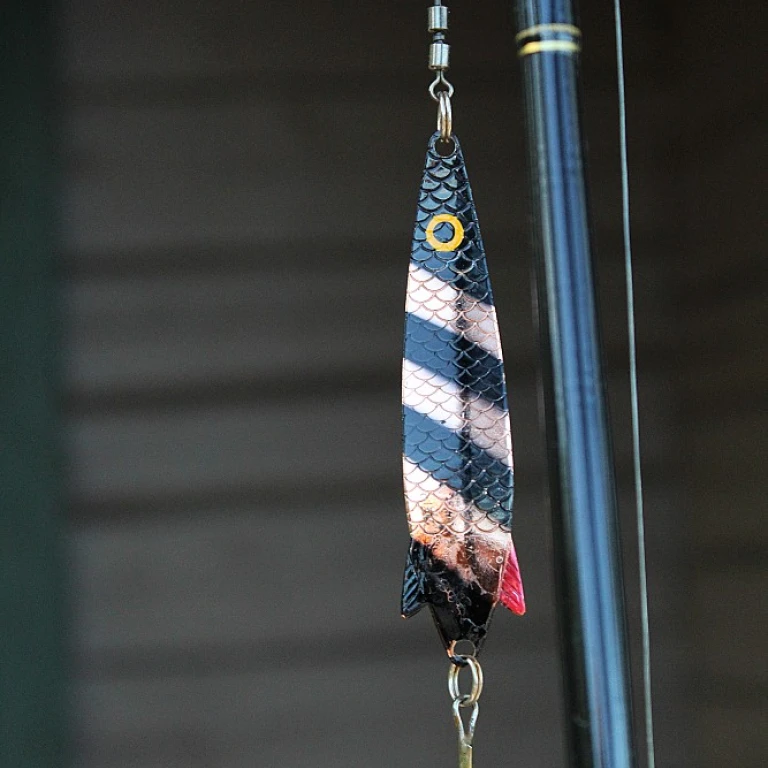

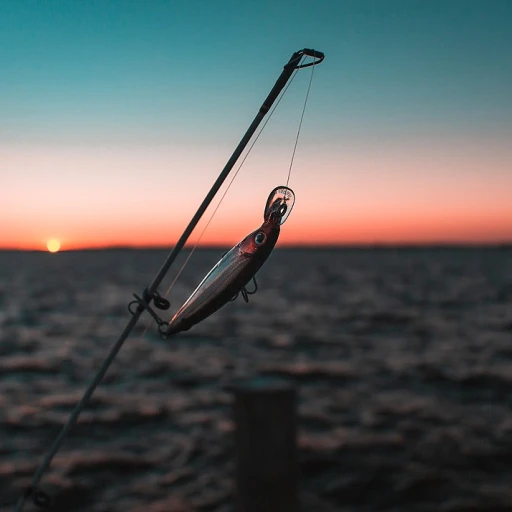

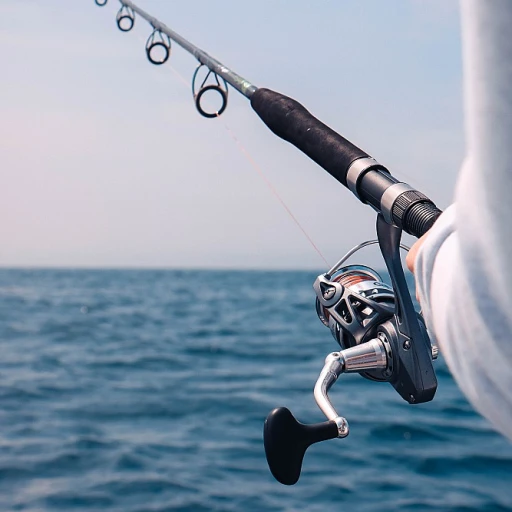
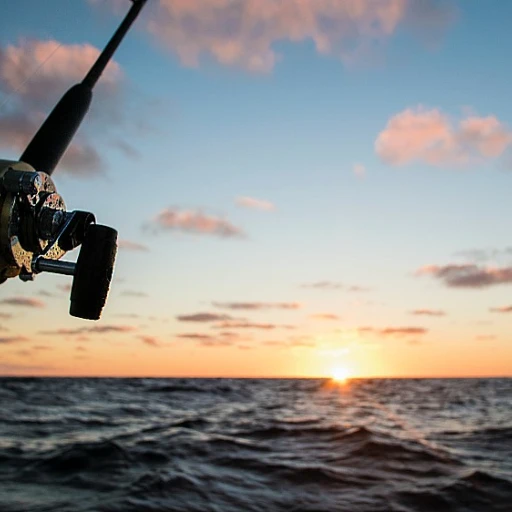
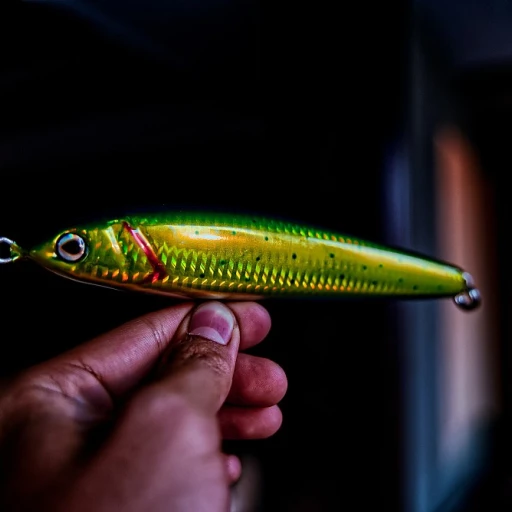
-large-teaser.webp)
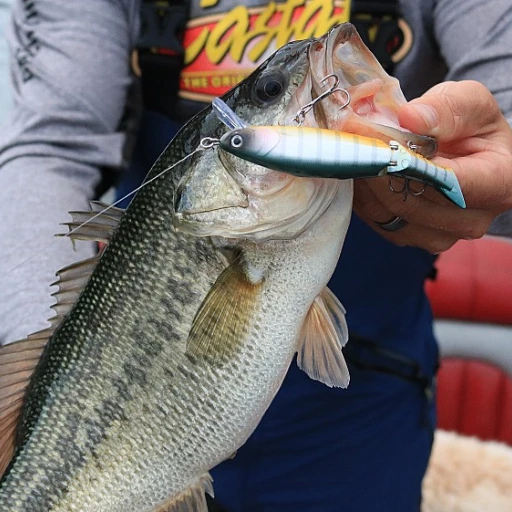
-large-teaser.webp)

